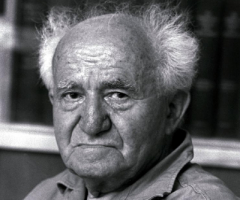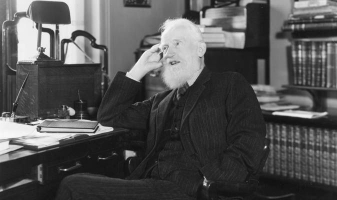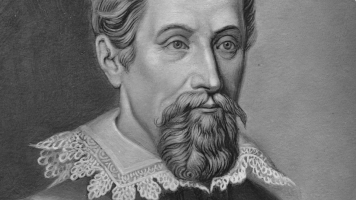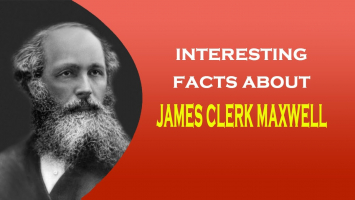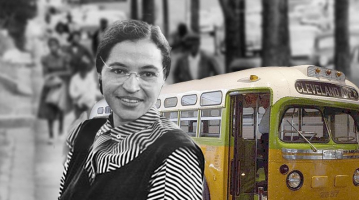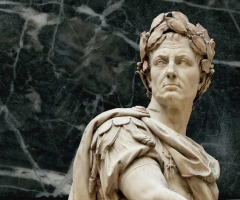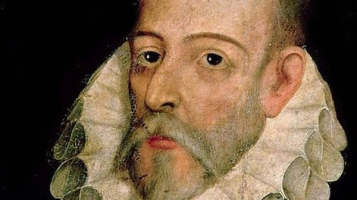Top 7 Interesting Facts about Hendry David Thoreau
This article's facts about Henry David Thoreau walk us through his life, his writings, and his philosophy. This man was the author of the revolutionary essay ... read more...Civil Disobedience, which later served as an inspiration to leaders like Gandhi and Martin Luther King Jr. We will discover amusing incidents from his life and the reasons why people (his neighbors) used to refer to him as a rascal. Thoreau led a meager life, like many other great American men of his era or earlier, before embracing minimalism and transcendentalism. So let's start with our list of interesting things facts to know about Henry David Thoreau rather than spending any more time.
-
More than 20 volumes contain all of Thoreau's publications, articles, essays, journals, and poetry. His publications on philosophy and natural history, in which he foresaw the approaches and outcomes of ecology and environmental history—two main sources of contemporary environmentalism—are among his lasting achievements. His writing demonstrates a lyrical sensibility, a philosophical austerity, and an attention to pragmatic detail while weaving together intimate observation of nature, personal experience, incisive rhetoric, symbolic meanings, and historical wisdom.
He also recommended forsaking waste and illusion in order to uncover life's fundamental basic necessities. He was fascinated by the idea of surviving in the face of opposing forces, historical change, and natural deterioration. A longstanding opponent of slavery, Thoreau gave lectures criticizing the law on fugitive slaves, praising Wendell Phillips' works, and defending John Brown. Martin Luther King Jr., Mahatma Gandhi, and other well-known political thinkers and activists were later influenced by Thoreau's ideology of civil disobedience.
This was 19th Century parlance for 'anarchist,' and it may well have been that Thoreau did not wish to bear whatever stigma may have been associated with such terms. Nevertheless, it does not appear that those around him were unaware of his fundamental sentiments. Ralph Waldo Emerson, in 'Thoreau' ' his recollections of Henry David read at his funeral in May of 1862 ' had this to say of the man: 'But, idealist as he was, standing for abolition of slavery, abolition of tariffs, almost for abolition of government, it is needless to say he found himself not only unrepresented in actual politics, but almost equally opposed to every class of reformers.'
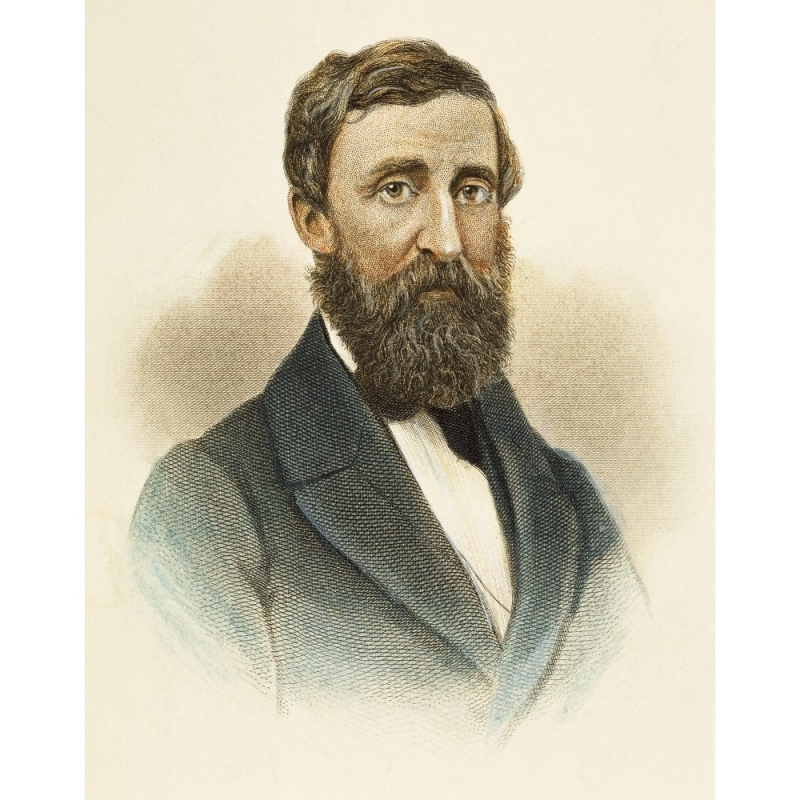
Source: Walmart 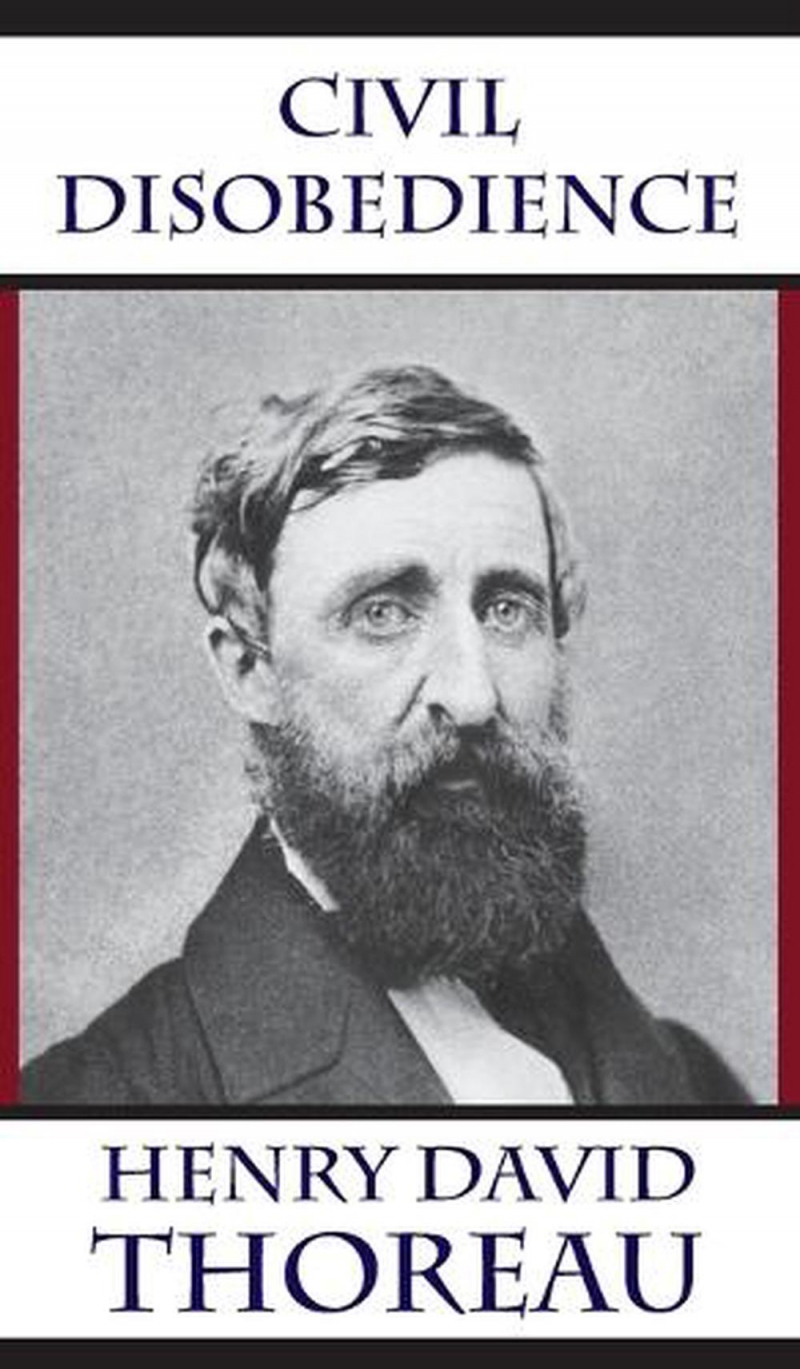
Source: eBay -
Thoreau, Henry David One of the most influential figures in the Transcendentalist movement was Henry David Thoreau. Through his writings, personal sorrow, ideals, and connection with Ralph Waldo Emerson, he helped to lead this movement. Transcendentalism's fundamental tenets include the right to peacefully protest when laws conflict with one's own convictions and the concepts of being one with nature. Due to his training, life experiences, and familial influences, Henry David Thoreau was able to lead this movement.
Thoreau is famous for his outspoken speeches and articles in addition to his naturalistic and philosophical writings. On July 12th, 1817, in Concord, Massachusetts, Thoreau was born. His little family traveled about quite a bit. John Thoreau started a grocery store in Chelmsford, Massachusetts, where the family relocated in 1818; however three years later, in 1821, the store closed, and the family moved to Boston where John taught school. In 1823, the Thoreau family returned to Concord, where John took over his brother-in-law’s pencil factory.
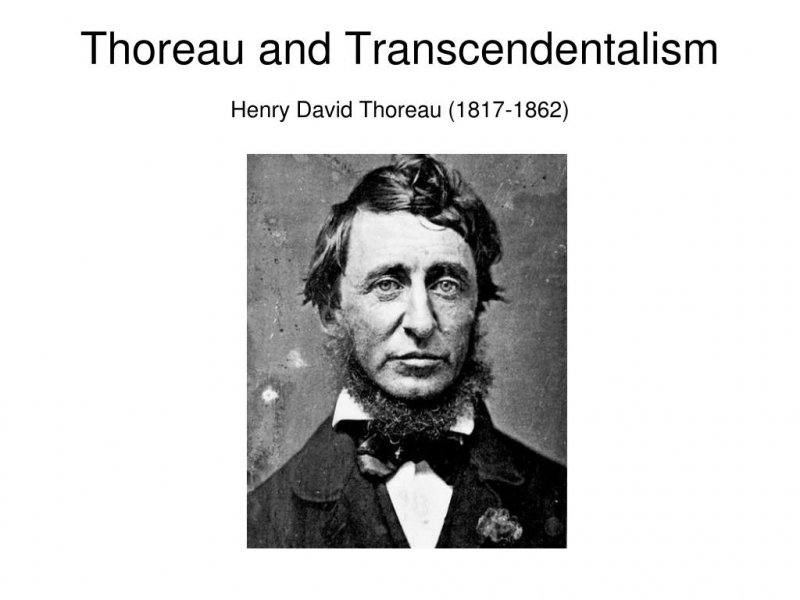
Source: SlideServe 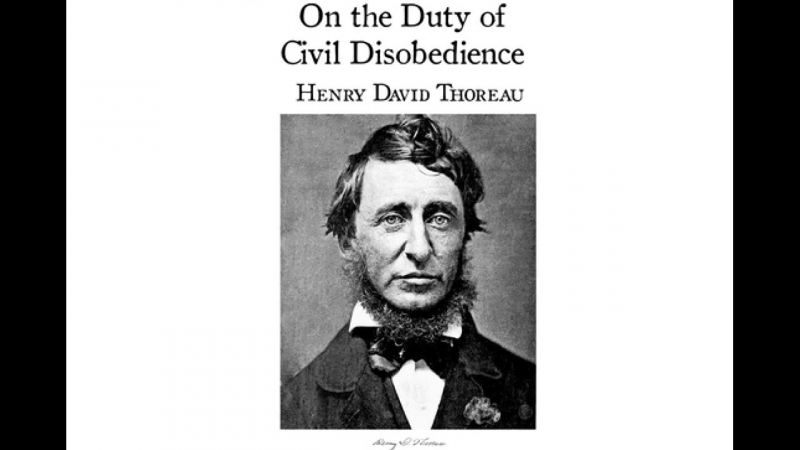
Source: YouTube -
He established himself in a woodland near Walden Pond in Concord, Massachusetts, and constructed a small cottage for himself. He famously penned in Walden, "I went to the woods because I wished to live deliberately." This piece, along with Civil Disobedience, which was also influenced by his stay at the pond, would go on to rank among the most significant literary works in American history, inspiring movements for civil rights, environmentalism, and abolitionism. On this day in 1847, Thoreau quit his position after spending two years, two months, and two days in a state of near solitude.
“It’s really the most famous vacation in American history,” says David Ward, a historian at the National Portrait Gallery. “What he did in the book was he took those two years of experiences and condensed them into a work of art.”
Thoreau composed "Walden" while residing in a cabin close to Walden Pond for two years, two months, and two days. By employing the four seasons as a metaphor for the progression of humanity, Walden condenses the span of just over two years into one year. The book that served as inspiration for the transcendentalist ideology was an attempt at achieving personal spiritual enlightenment and serves as a guide to independence.

Source: https://abebooks.com 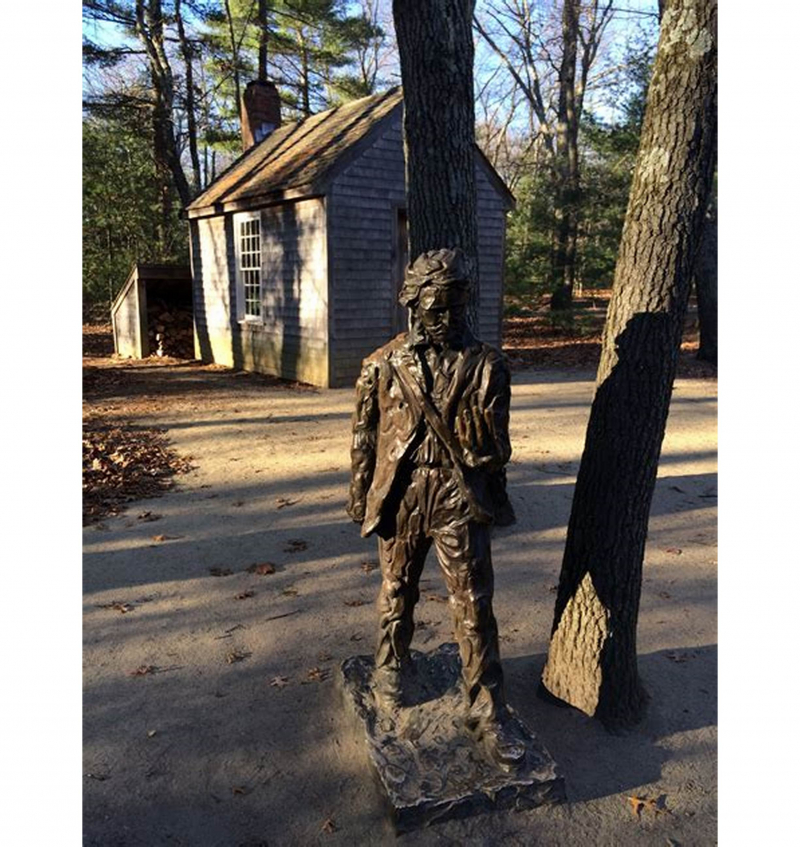
Source: Pinterest -
Thoreau did not completely embrace the wilderness or shun society. Instead, he looked for a middle ground—the pastoral setting, which combines nature and society. The night he spent in jail for not paying poll taxes is the most well-known incident from his time at Walden Pond. He believed that endorsing the government would imply that he approved of all of its policies, especially the Mexican American War, which would have resulted in the expansion of slavery westward. The concepts in the essay Resistance to Civil Government, often known as Civil Disobedience, were largely influenced by this experience.
According to Ward, "Thoreau is living alone metaphorically because he is morally alone and is dependent entirely on his own conscience." Which is the point of civil disobedience—that one guy may overthrow a corrupt government by himself by making a statement of conscience. Following a simple life at Walden Pond, Thoreau traveled extensively as an amateur naturalist and wrote a lot. There aren't many pictures of him left, but the Portrait Gallery has one small daguerreotype from 1956. It was created in a thrifty, Thoreau-esque manner. According to Ward, "a reader sent him a $5 cash and requested a picture to go with the book because he appreciated his work so much. “Thoreau went into town, went to the daguerreotype, and had this small daguerreotype taken, probably the cheapest variety you could have made. He sent it and the change back to this man in Ohio.”
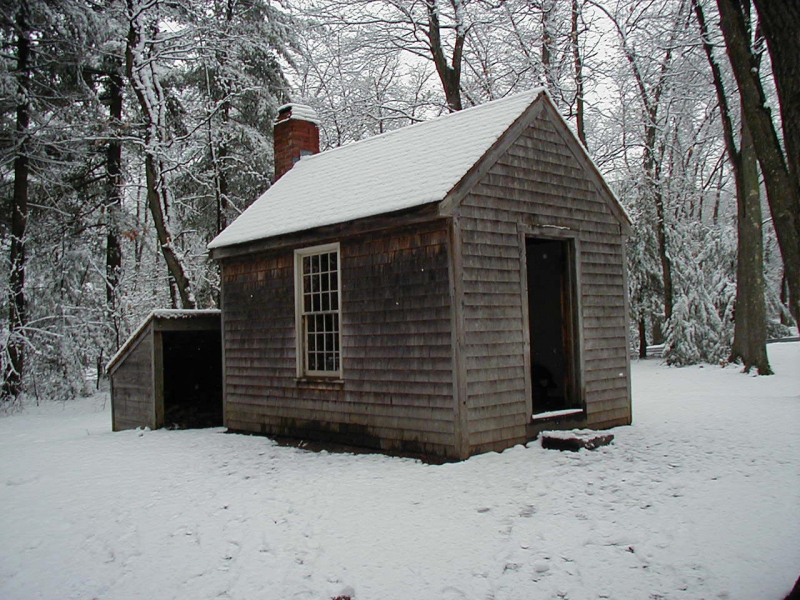
Source: Walmart 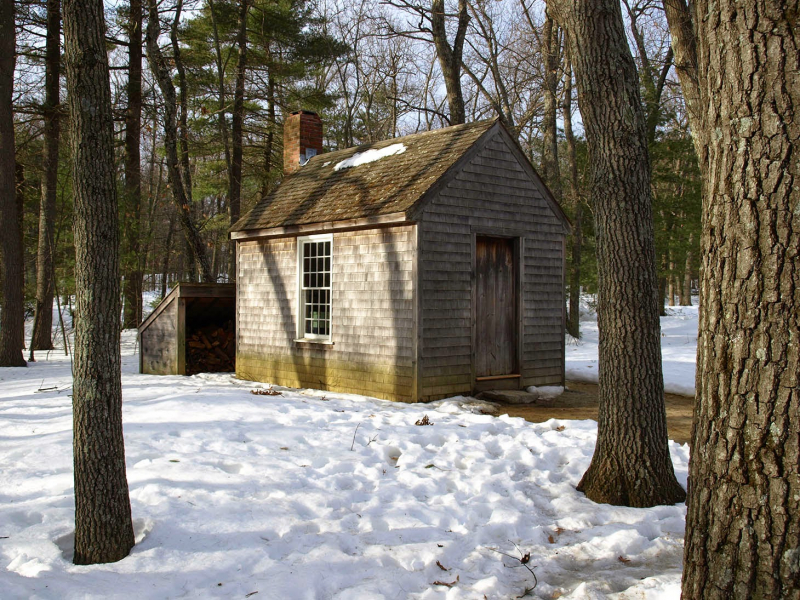
Source: blogspot.com -
Argued for defying an unjust government, and it eventually served as an inspiration for figures like Mohandas Gandhi and Martin Luther King Jr. The title is a crucial component that must be taken into account and avoided misinterpretation. The original publication of this essay was titled "Resistance to Civil Government." Later, he uses the metaphor of the "resistance" in his title to equate the government to a machine.
"If the unfairness is part of the necessary friction of the machine of governance, let it go, let it go; perhaps it will wear smooth—certainly the machine will wear out," he adds because the system is producing injustice. "Let your life be a counter friction to stop the machine," he says, extending the metaphor. The title of Thoreau's essay was changed to "Civil Disobedience" after his passing. In this essay, the term "civil" is used to refer to matters "related to citizens...show more content...
This writing style aims to persuade the audience that your arguments are superior to and more credible than those of others. The three categories for persuasion techniques are pathos, ethos, and logos. Thoreau does a great job of persuading his readers throughout his article by using these techniques.
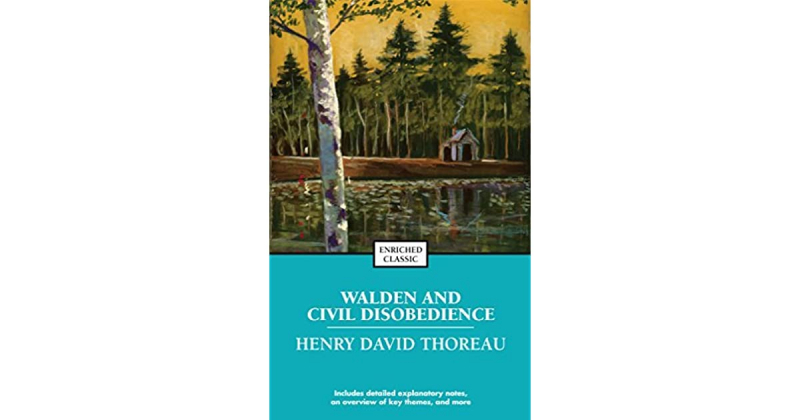
Source: Goodreads 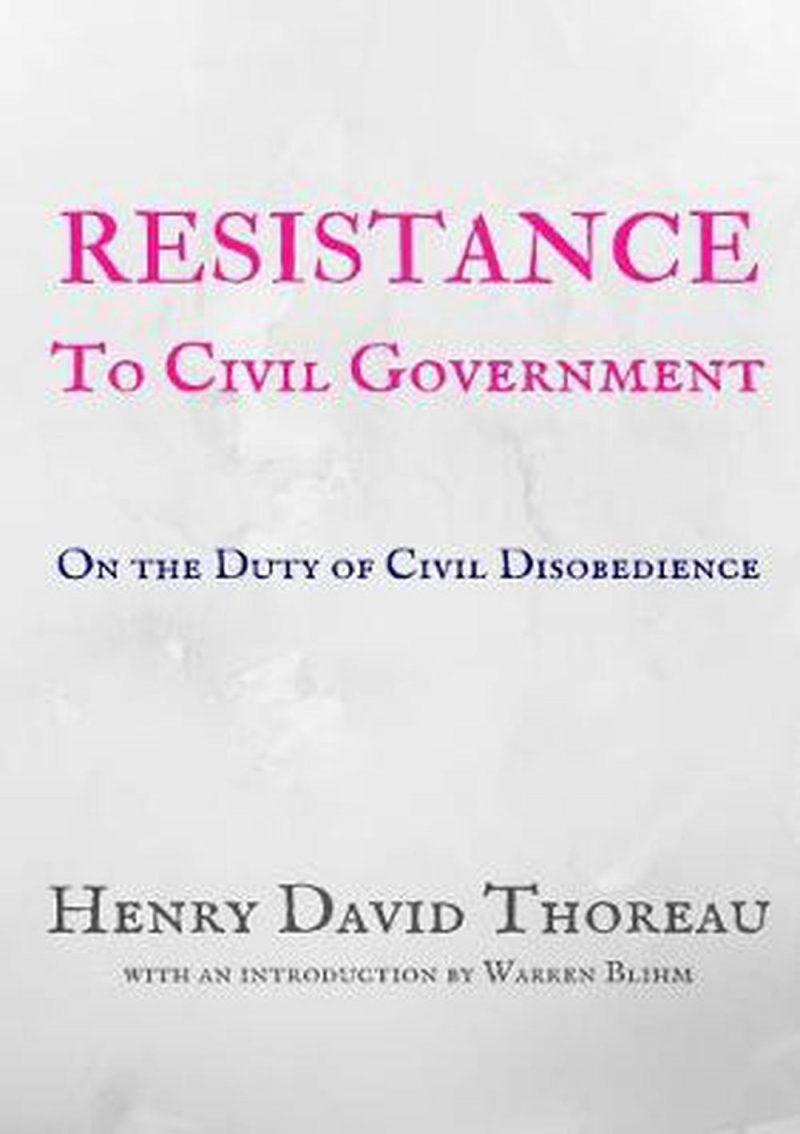
Source: eBay -
The pieces in it discuss things like how seeds spread and how New England's fall foliage looks. He was an early supporter of wilderness preservation as public land and of outdoor activities like canoeing and hiking. years past and legacy Despite having caught tuberculosis in 1835, probably aided by his employment at the family pencil factory, Thoreau stayed relatively healthy up until the time he trudged through a downpour to count the rings on a tree stump in 1859.
Thoreau's writing speed picked up as he appeared to realize the seriousness of his circumstances. Bedridden during the final months, he continued to dictate to his sister. Friends gathered together as the end drew near to say their final goodbyes. They were astounded by the peace that surrounded him, and one of them inquired, "Have you made peace with God?" And Thoreau answered, "We've never argued." Early on, Thoreau promoted recreational kayaking and hiking.
He was a pioneering conservationist who supported protecting public lands' wilderness and natural resources on private property. He valued a vegetarian diet since it was practical. He believed that consuming animals was wasteful, unhygienic, and ultimately required more energy from the independent person than it provided. He did not, however, strictly adhere to a vegetarian diet.

Source: The Christian Science Monitor 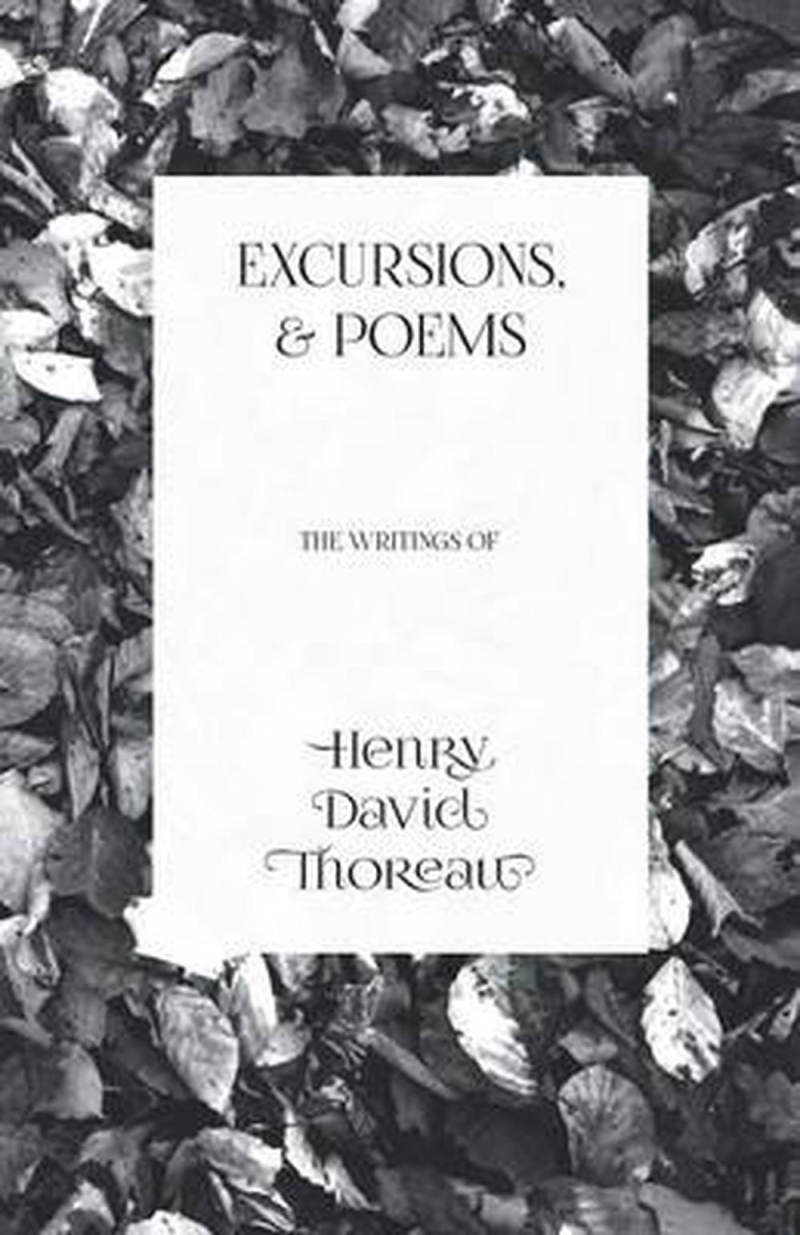
Source: eBay -
Thoreau was close friends and a protégé of fellow transcendentalist Ralph Waldo Emerson and it was on Emerson’s property where Thoreau lived and wrote Walden. A leader of the Transcendentalist movement, Ralph Waldo Emerson was anything but transcendent when he arrived at Concord. He was a young man who suffered from uncertainty, melancholy, and difficult circumstances. Ralph Waldo Emerson was no stranger to poverty, which has a way of tainting all of life's experiences. His mother began taking in boarders after his father passed away when he was a youngster, leaving a wife and three sons. She still struggled to make ends meet. A family acquaintance "discovered the family one day without any food, except the stories of heroic endurance that their aunt, Mary Moody Emerson, was regaling them with," according to one biographer. Emerson and his brother Edward had but one overcoat between them, and had to take turns going to school.”1 He was accepted at Harvard at an early age, and waited tables to defray tuition. But he was an unspectacular student. His brothers were more brilliant than he.
Emerson turned unsuccessfully to teaching, and subsequently head-mistressing, at a school in his mother's house due to what seemed to be a rising sense of failure. He finally made the decision to enter the ministry and succeeded in getting a good job. But his abilities were limited to the pulpit. He visits a Revolutionary War warrior on his deathbed, according to a well-known tale. When he was unable to find any consoling words, he moved the subject to glassmaking. "Young fellow, if you don't know your business, you had better go home," the elderly man roared from his bed.
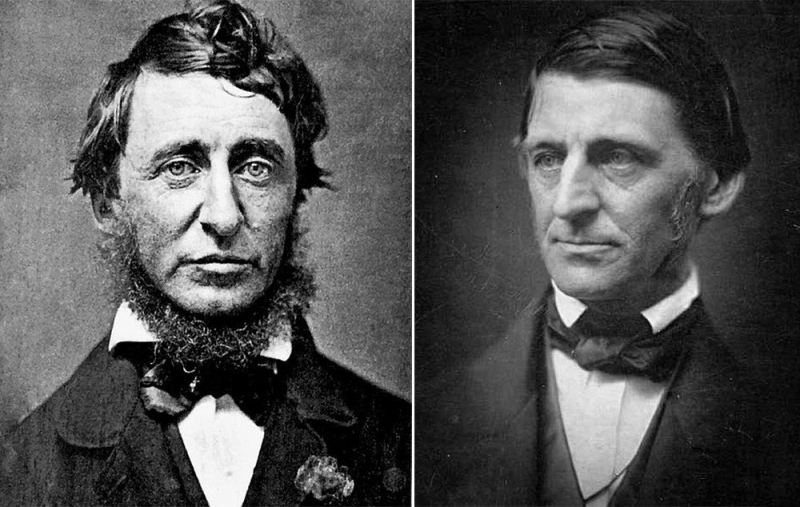
Source: WBUR 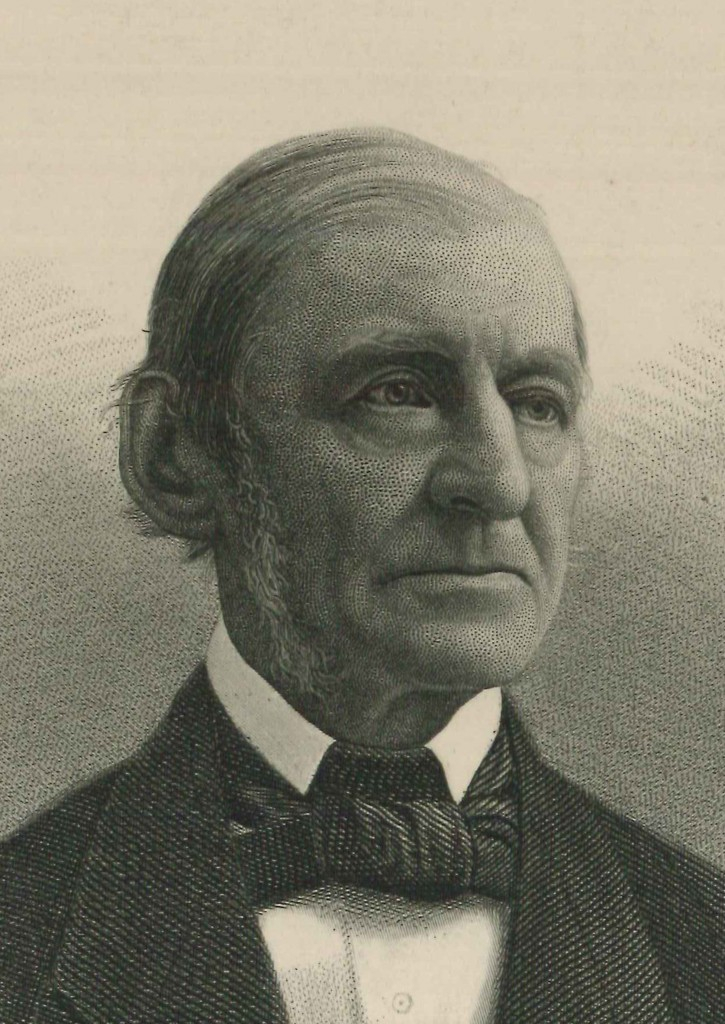
Source: Baylor University









